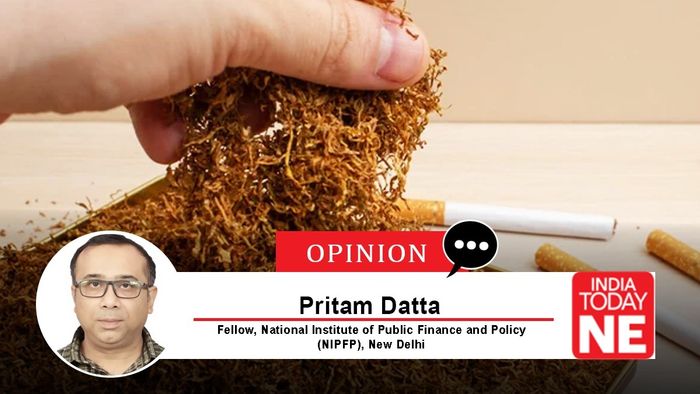Illicit Tobacco Trade in India: How big is the problem, and what should be done?
Illicit tobacco trade undermines health and revenue in India. Stronger enforcement and technology are key to tackling the issue.

- May 08, 2025,
- Updated May 08, 2025, 2:42 PM IST
Since the rollout of GST, tobacco taxes in India have seen minimal increases and remain below WHO-recommended levels. Meanwhile, growing concerns over cross-border smuggling are increasingly used to oppose further tax hikes, especially on cigarettes. The tobacco industry argues that high taxes drive smuggling, with smugglers targeting high-tax countries for higher profit margins. Globally, cross-border illicit tobacco trade results in a loss of USD 40.5 billion in revenue. Eliminating it in low- and middle-income countries could recover around USD 18.3 million in revenue. This article aims to assess the scale of illicit trade and whether there is a valid case for further increasing tobacco taxes in India.
What does illicit trade mean?
Illicit trade can stem from both domestic production and cross-border smuggling. In developed countries with formal economies, it primarily involves smuggling. In contrast, developing countries like India face a dual challenge: illicit trade through informal sector production of low-quality or counterfeit goods, and tax-evading imports. Domestic illicit products produced in the informal sector primarily attract consumers due to their low price. In contrast, smuggled illicit products appeal not only because of lower cost but also due to consumer cosmopolitanism—the tendency to prefer foreign goods—and perceived foreign superiority, where imported products are assumed to be of better quality than domestic ones.
How large is India’s informal tobacco market (or local source of illicit trade)?
India has a large number of informal tobacco producers, including cigarette manufacturers, who operate outside the control of any tax or policy framework, serving as the domestic source of tax evasion and low-quality products. More than a quarter of the tobacco GVA (Gross Value Added)—including 5% from Household Worker Enterprises (HWEs) and 22% from Own Account Enterprises (OAEs)—originates from the unregistered sector. Informal manufacturers remain completely outside the tax and policy framework. Additionally, in the post-GST regime, taxes that need to be collected below the manufacturer level are largely evaded by informal traders.
What is the extent of cross-border illicit tobacco trade in India?
Data from 2017–18 to 2023–24 show (Figure 1) that India remained a net exporter of cigarettes and other tobacco products. During this period, the export value of cigarettes (HS code 2402) grew at an average annual rate of 7%, while imports rose by 20% per year. Notably, the value of cigarettes seized by the Directorate of Revenue Intelligence also increased by 20% annually, indicating a parallel rise in illicit trade activity.
The rise in cross-border illicit trade, despite stable or increasing formal imports, exports, and domestic production, suggests that smuggled products are not replacing legal ones but are being added alongside them. This indicates that illicit trade represents a leakage rather than a substitution, pointing to gaps in enforcement and weak regulatory controls.
Closing thoughts and policy proposals:
Cross-country analyses show that the industry consistently exaggerates the scale of illicit trade and misrepresents trends to undermine effective tobacco tax policies and control measures. India has some of the lowest tobacco product prices globally, and the Indian tobacco industry cites the ‘Euromonitor’ report to claim that 25% of the cigarette market was illicit in 2019, aiming to derail the policy of imposing high taxes on cigarettes as recommended by the WHO under the FCTC framework. However, independent research estimated illicit cigarette use at 5.6% in 2009–10 and 6% in 2016–17, with only 3% of smokeless tobacco products found to be illicit.
The presence of informal producers and vendors poses a major challenge to India’s tobacco control efforts. A large number of informal manufacturers produce widely consumed smoking products like bidis, while in the post-GST regime, the widespread presence of unregulated tobacco vendors further complicates the enforcement and compliance of tobacco taxation. India should therefore introduce a compulsory licensing system for the manufacture and sale of all tobacco products in the country
However, cross-border illicit tobacco trade should be viewed as a general leakage in the trans-border movement of products and must not be used as a reason to undermine India’s tobacco control efforts as one of the first signatories of the WHO FCTC. It is essential to strengthen border security to prevent the illicit movement of all goods, including tobacco products. Alongside, India must stay committed to increasing tobacco taxes, in line with WHO recommendations, to effectively raise prices and curb consumption.